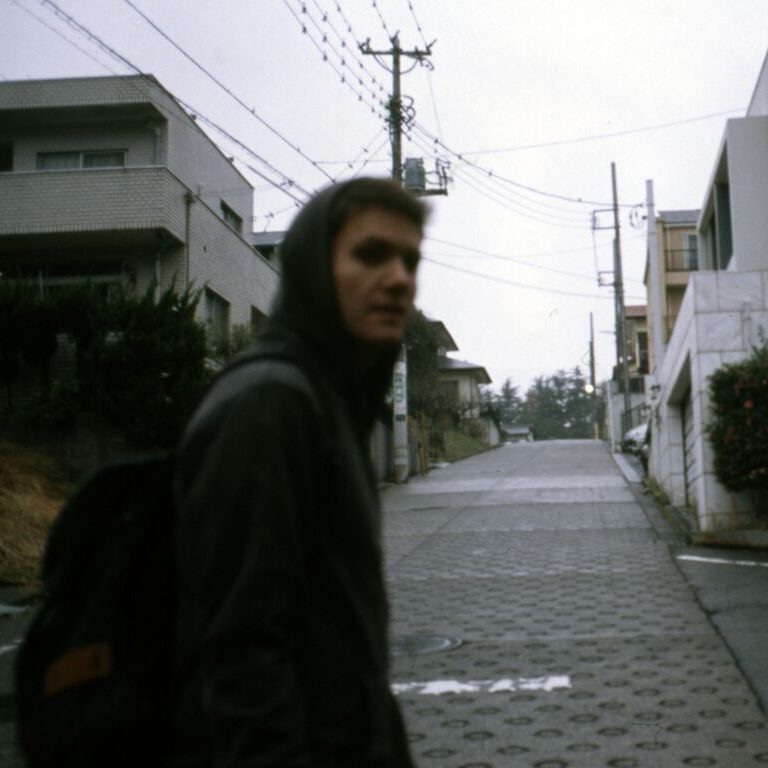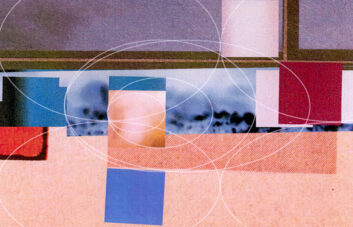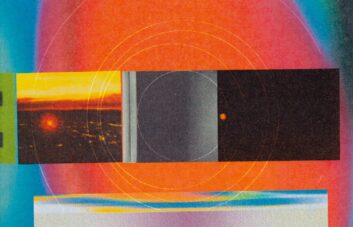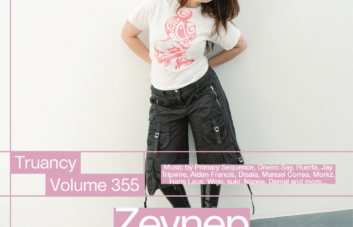American artist Will Long has had a long and steady career releasing ambient music. In 2005 he established Celer with his wife Danielle Baquet-Long. He continued the project after her passing in 2009, totaling upwards of 100 releases to date. In the past few years he’s moved into the domain of house music, putting out a series of 12″s and then a CD collection of tracks on Comatonse Recordings (the label run by DJ Sprinkles). The tracks were deep, expansive affairs, riven with vocal samples culled from political speeches. Each track was also accompanied by a Sprinkles overdub, which lent the project even greater weight. A second collection, entitled Long Trax 2, is due soon on Smalltown Supersound (on both CD and across three 12″s), continuing in the vein of its predecessor. We spoke to Will, who’s now based in Tokyo, Japan, over email, discussing the politics of his music, the sad necessities of capitalism and the experience of making house in a kind of vacuum.
Hi Will! Thanks for taking the time to talk to us. “Thanks for asking, I appreciate it.”
You remixed Lindstrøm’s “Tensions” last year — how did this come about? “I heard from Smalltown Supersound in early 2017. I think they had heard the first Long Trax on Comatonse, and wanted a remix like that for Lindstrøm.”
Was this before or after you established that you would be releasing on Smalltown Supersound? “I’m sure it was before, because I wouldn’t have had Long Trax 2 finished yet. I think I did the remix in the spring, and finished Long Trax 2 by the end of the summer.”
The new album is gorgeous. A lot of people say that music cannot be political without lyrics (I’m not one of them btw) — you’ve incorporated elements of political speeches and interviews into your music, which is otherwise dreamy and uplifting, giving it a strange urgency. What is your own view on politics in generally instrumental music? “Because of the history of house music, and for what I believe the reasons that it started, including samples on these themes was the best way I could tie in my ideas and opinions with the culture of house music.
“Where people most often get it wrong is in their definition of what political represents in the first place. It’s not as simple as being left or right, liberal or conservative. All of that is nonsense. Especially in our current times when the sides have become so polarized, we’re becoming stupid looking at superficial summaries of each side. If we’re going purely by definitions, I’d go as far as to say that ‘cultural’ (relating to the ideas, customs, and social behavior of a society) is just as appropriate a description. I’m much more interested in the social impact rather than the political.
“I’m not a singer or lyricist, so for me, quoting these people is both a way to empathize with their words, give my respect, and bring attention both to them and to their ideas, as well as to house music itself, and what it represents.”
I understand what you’re saying about politics in music. Are you talking about the polarisation you mention, or general inequality, be it social or financial? “I mean more about creating generalizations where something is political, as a way of defining a purpose. To me that seems really loose, and not like it really reflects the subject matter of the samples themselves. Are those political issues, or social (cultural?) issues? Maybe both.
“The levels are the difficulties in presenting information to an audience. You have to remove stereotypes, generalizations, and provide a background for the basis to why you’re even attempting to explain this problem in the first place – the problems – any social, racial, historical, economic, cultural issue that’s being addressed.”
One thing I’m interested in is asking about how the work of other artists feeds into what you are doing. Do you look to the past for inspiration? Or is house a ‘feeling’? “I don’t feel connected in almost any way to a community of house music or electronic music, and I’m also not interested in trying to be cutting edge – always updating or latching to what other currently active artists are doing to be part of a group. If I hear their work it’s rarely immediate, and if I identify with them at all it’s just a handful of people, and we’re all likely making different kinds of music.
“Because of this I focus more on just what I’m interested in regarding the instrumentation, focusing on those details within it. The speeches I use are obviously from the more distant past, and all along I’ve been most interested how these themes tie in with my own idea of what house music is, but also as a reminder of our societal failures and what still needs to be fixed.”
Another question for you is about modes of – and I hesitate to use this word – consumption. You say that making house or making ambient are different experiences for you, with different intentions. What about your audience? Do you have a suggested or ideal state of listening? “I really don’t have any particular preference for that. I prefer releasing house music on physical formats because I like the physical objects, the design, and the sounds of the formats. It sounds different in every place. I try to avoid digital releases when I can because I simply don’t like it, but it’s tragically a necessity in many situations.”
People are keen to know if there will be Sprinkles overdubs of these new tracks? “Not for this album, it’s something we did that was exclusive to Comatonse. But it might happen again in the future. I hope so!”
How different is your approach to making house music to making ambient? “It’s completely different because of the instruments and sounds, but also because of the structure. I don’t follow any common structure with ambient music, it’s based more on feeling and memory, and is without rules.
“House is different, but in that I want to try to follow some rules, and simultaneously be respectful to the history of the music. I’m not doing anything original that hasn’t been done before, and it’s important to remember that and appreciate it. Those limitations and rules make it different, and appealing.
There are some similarities to both I feel — each style involves discrete elements unfolding over a long period, be that structured percussion-driven patterns in house music or undulating ambient tones. There’s a similar hypnotic pull to it. Does that correspond with your own music? “It’s hard for me to compare them. They feel so different to me, but maybe just because of the methods and instruments I’m used to. With ambient, I’m usually trying to stay in one place. When you’re trying to capture a moment, the idea is to stay in that place — changes take you somewhere else. With house, I’m just trying to create a different kind of environment with a more direct message. But there will always be parallels between both.”
Last year, Gunner Haslam tweeted: “ambient music is and should be, like other musics, social music. music you experience with other people and dive full into together. not music to help you be the most productive capitalist you can be.” I certainly get the latter sentiment, but the notion that ambient is social feels strange to me, as it’s always been headphone music for me. I’d be keen to hear your thoughts. “My first thoughts in reading that, first is that I really don’t have any desire at all to direct people how they should listen to ambient music. I’ve made it for my own reasons in a state or form that feels right to me (or in the best way that was possible), and I don’t expect everyone or anyone to see it, feel it, or hear it from my perspective. If they do, that’s great, but if they can relate to it in themselves in regards to another experience then that’s ok too.
“Again I don’t feel a connection to these music communities – to ambient music either – and it’s nice if someone can feel this way about ambient music, and can make it part of an experience with other people. However after having done it for more than 10 years, I haven’t been able to find that solace.
“Second, I think it’s hard to exist in our world today without accepting some degree capitalism, if it is survival alone. You certainly can’t be a successful DJ or musician without admitting that it plays a part. Of course it’s important to call it out, and do everything you can to change the way things are, but we’re all part of this broken, selfish machine.”
I notice you’ve played sporadically in Japan over the past few years, but largely at ambient shows. Have you ever DJed? If not, what would you play? Are there are any house artists that have impressed you lately? “Right, I only started playing house shows after the first Long Trax came out in 2016. I haven’t DJed. There are thousands of people better at this than me, so if I do it at all I’m sure it’s just for fun.
“I’m terribly uninformed of new music. Usually I’m going backwards instead of keeping up with what’s new, but some recent artists I enjoyed were Byron the Aquarius, Yaeji, Fred P, Kuniyuki and Laurel Halo. And DJ Sprinkles, obviously.”
You’ve self-released a lot of music yourself as Celer (though recently you teamed up with Forest Management for a release on Constellation Tatsu) but ‘Will Long’ music generally comes out on other labels. What is the difference between the two methods for you? “I try to keep them separate in many ways, though it’s usually just that the labels focus on one style or the other. I think the two naturally run in different paths, and that’s something appealing about it, too. Similar, but different.”
You tweet a lot of screenshots from non-mainstream films (I noticed a shot from Pierrot le Fou for example, and your profile picture is from a Fassbinder film) — how much time do you spend watching films, and does it influence your music at all? “I don’t get to spend as much time as I used to watching films, but I do enjoy them quite a lot. The best films are always the ones that you can relate to, even if it’s only one scene, character, or moment.”
You’re an American living in a foreign country. How does it feel watching your home land from afar? “It’s depressing, as always.” How is your Japanese at this point? “It’s depressing too, but not as bad as America.”
Will Long – Long Trax 2 is out on March 16 on Smalltown Supersound. Buy here.




